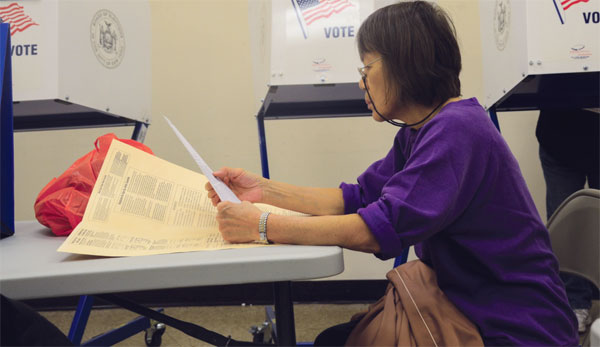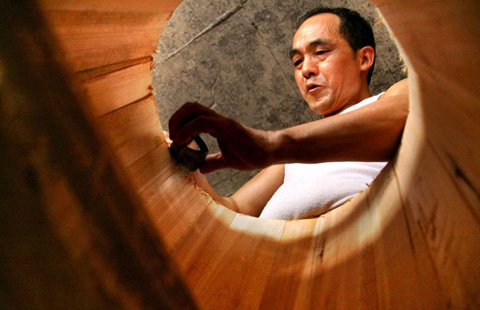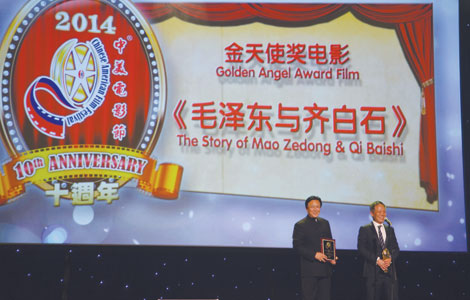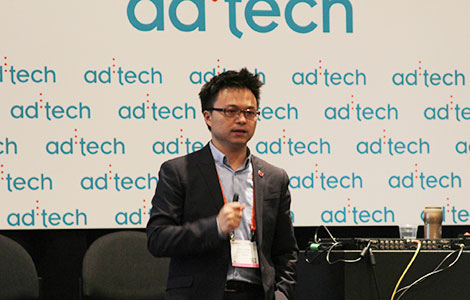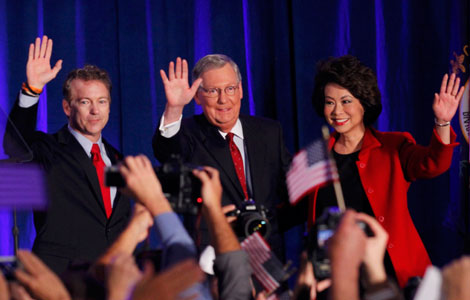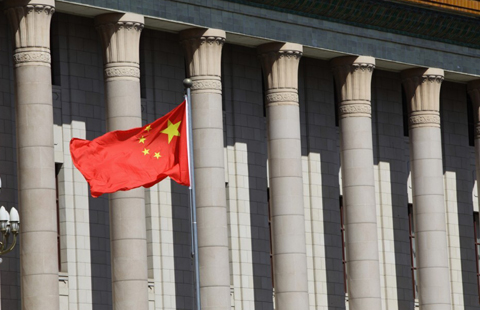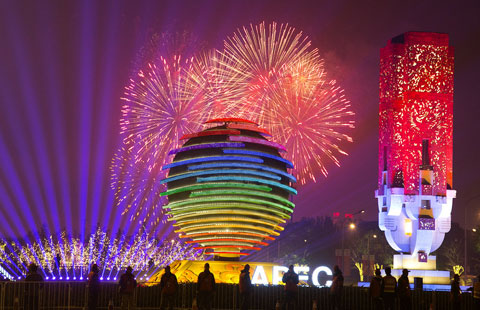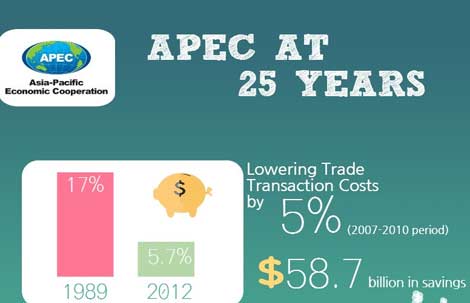Chinese Americans run in elections across US
Updated: 2014-11-05 12:01
By Niu Yue in New York(China Daily USA)
|
||||||||
'Voting is power. Voting is voice,' says one teacher.
Election Day in the United States saw Asian Americans run in federal, state and local races, from Congress to city council seats.
Among the Chinese Americans running were Republican Allan Fung, who sought to be Rhode Island's first Asian-American governor on Tuesday. Republican Phil Gim ran for New York's State Assembly in the new 40th district; and California State Senator Ted Lieu, a Democrat, sought a seat in the US House of Representatives.
Fung fell short in his bid to Democrat Gina Raimondo, who became the first female governor of Rhode Island. He conceded shortly before 10 p.m. ET.
With 404 of the state's 419 precincts reporting, Raimondo had 118,340 votes; Fung had 108,511; and Moderate Party candidate Robert Healey had 64,554.
Fung threw his support to Raimondo saying, "You ran a great race too," the Providence Journal-Bulletin reported.
Raimondo, 43, is treasurer of the nation's smallest state. Fung, 44, is in his third term as mayor of Cranston. It was the most expensive gubernatorial election in the country, according to The Associated Press, with candidates spending more than $15.7 million, including in the primaries.
According to the 2010 US Census, there are more than 4 million Chinese Americans, a 40 percent increase from 2.9 million in 2000. In San Francisco, Chinese Americans are more than 20 percent of the population.
California representative Judy Chu, who is Chinese American, said that in challenging races Asian Americans can represent a "margin of victory". In an interview with Politico, she cited the race for Virginia's 10th congressional district between Republican Barbara Comstock and Democrat John Foust.
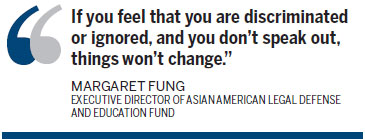
"That race is quite striking, in that they even talk about the Chinese Exclusion Act. That's pretty specific," she said. "This is very different from the past."
The China Exclusion Act passed by Congress in 1882 barred Chinese form coming to the US. It was repealed in 1943; in 2012 the US apologized for it.
In New York City's Chinatown on Tuesday, Lester Cheng, a coordinator at the voting center at Confucius Plaza, told China Daily that measures had been taken to accommodate Chinese Americans, in part because the Chinese population is large enough to affect election results. Chinese Americans account for 6 percent of the city's population, according to the 2010 Census.
Interpretation service has become mandatory for citizens with limited English capabilities, and volunteers were working non-stop to help at the voting center. "[In the past,] 99 percent working here were white people, but now 70 percent Chinese." said Cheng.
"Voting is power. Voting is voice," said Jian Liu, a New York-based high school teacher, after casting his ballot in Brooklyn, The 27-year-old also voted in the 2010 mid-term election right after he became a US citizen in Oct 2010.
Chinese Americans have long been silent about politics, said Shirley Eng, 75, who was at the Chinatown center. "They didn't know the system. They didn't know the language."
However, Liu said things are changing because political awareness among Chinese Americans is growing, especially with the generation that has been educated in the US.
Margaret Fung, executive director of Asian American Legal Defense and Education Fund, said the number of Chinese Americans seeking election across the US could be regarded as a rise of political status for Chinese communities.
The New York-based fund has been working with Asian American communities, including Chinese Americans, across the US to promote civil rights and to register and vote. She said that she expects more Chinese Americans to be active in politics.
"It's part of understanding America. If you want to have a voice in important political decisions, you have to be actively involved in it," she said, "If you feel that you are discriminated or ignored, and you don't speak out, things won't change."
Lu Huiquan in New York contributed to this story.
|
A Chinese American is reading instructions before casting her vote at Confucius Plaza, Chinatown, New York on Tuesday. Lu Huiquan / For China Daily |
(China Daily USA 11/05/2014 page2)
Most Viewed
Editor's Picks

|

|

|

|
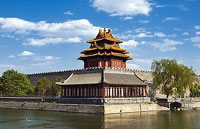
|
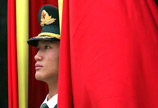
|
Today's Top News
New relationship to advance
Chinese lift profile in US elections
US-China trade deficit hits record high
Movie moguls gather at LA film summit
Oklahoma seeks Chinese investment
Festival pays tribute to Chinese film
Top Chinese violinist remembers New York
Shanghai FTZ explained
US Weekly

|

|
